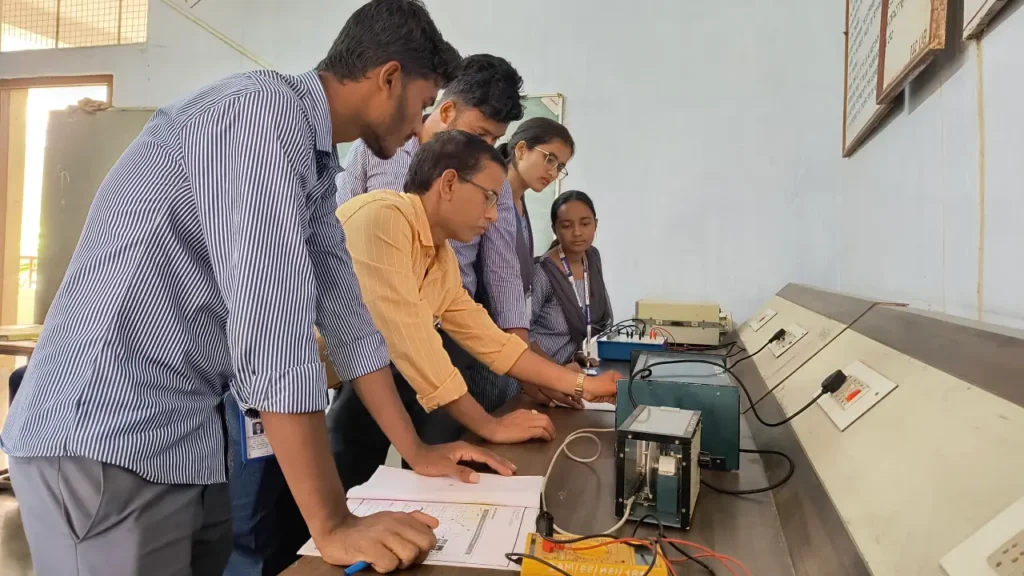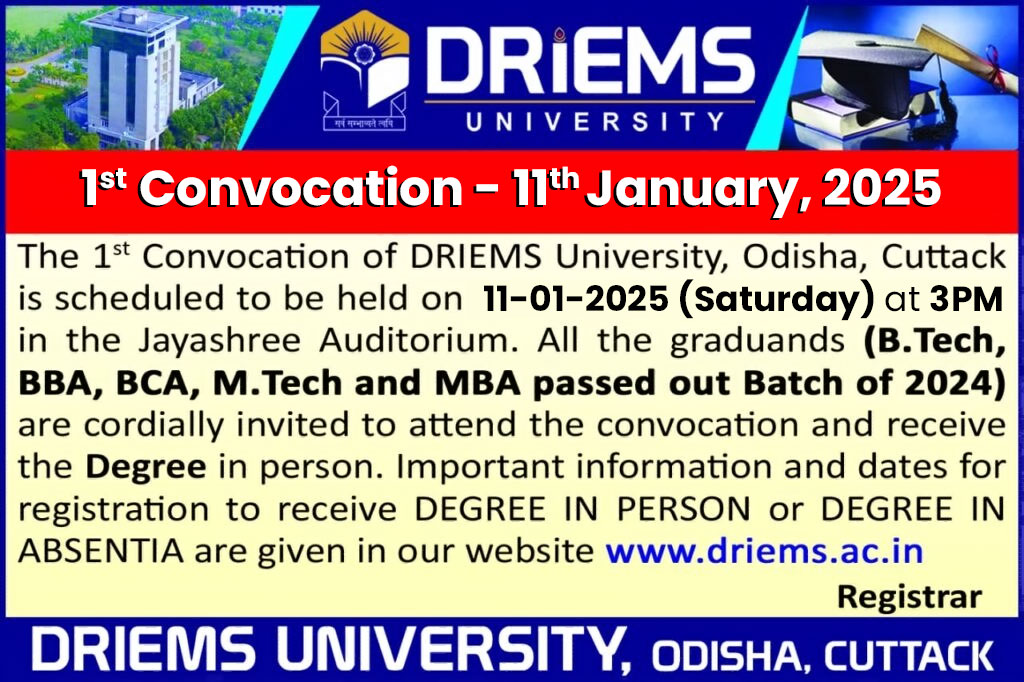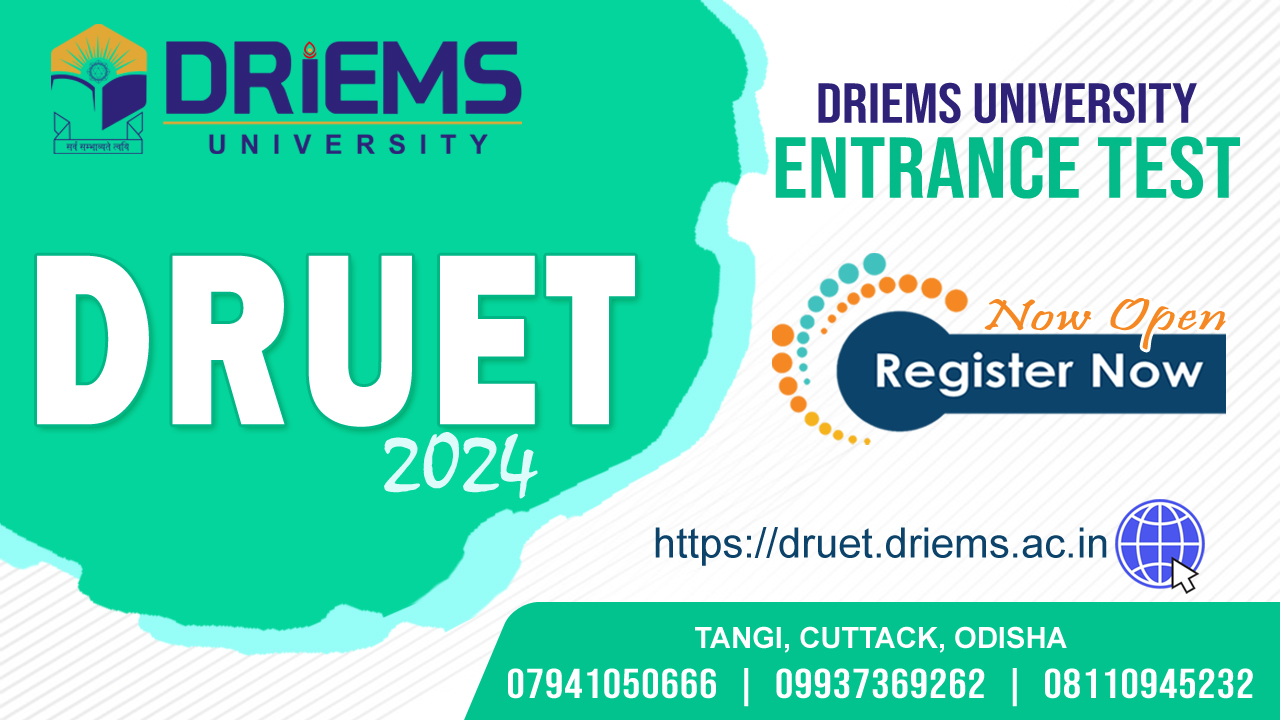Electrical & Electronics Engineering Labs
Advanced Labs, Comprehensive Learning!
The Electrical and Electronics Engineering Department is equipped with cutting-edge laboratories that enhance hands-on learning and technical proficiency. The Basic Electrical Lab and Network Theory Lab cover fundamental electrical principles and circuit analysis. The Electrical Machines Lab and Power System Lab provide practical exposure to machines, power generation, transmission, and distribution. The Control System Lab and Electrical Measurement Lab focus on automation, system stability, and precision measurements. The Power Electronics Lab offers insights into power conversion and semiconductor-based technologies. The Microprocessor and Signal Processing Lab explores embedded systems and digital signal processing. The Simulation and Modeling Lab enables advanced system design and analysis. The Project Lab fosters creativity, innovation, and real-world application of engineering concepts. These well-equipped labs integrate theory with practice, preparing students for research and industry challenges.

Staff
Mr. Gopal Krushna Mishra
Email: gopalkrushnamishra@driems.ac.in
Mr. Kirti Ranjan Subudhy
Email: kirtiranjansubudhi@driems.ac.in
BASIC ELECTRICAL Engineering LABORATORY
The Basic Electrical Laboratory provides students with hands-on experience in electrical circuits and fundamental electrical components. This lab enables students to perform experiments on electrical circuits, including analyzing circuit behavior. Students gain hands-on experience with basic electrical equipment, develop essential skills, and prepare for advanced studies and industry applications.

ELECTRICAL MACHINE LABORATORY

The Electrical Machines Lab is essential for bridging the gap between theoretical concepts and practical applications. It provides students with in-depth knowledge of electrical machines, preparing them for real-world challenges in electrical engineering. The lab is equipped with both traditional and modern electrical and electronic measuring instruments, along with a variety of AC and DC machines and transformers. Designed to meet the needs of undergraduate students, this lab helps them grasp fundamental concepts and progress to advanced experiments, such as electrical machine modeling and the study of specialized electrical machines.
NETWORK DEVICES LABORATORY
The Network Devices Laboratory provides hands-on instruction in basic circuit theory and analysis methods. Ohm’s Law, Kirchhoff’s Laws, resonance, the Thevenin and Norton theorems, and transient and steady-state response are all the subjects of student experiments. For testing and verifying circuits, the lab is furnished with digital multimeters, oscilloscopes, function generators, and power supply. Frequency response analysis, two-port networks, RLC circuits, and network theorems are all covered. Students’ comprehension of circuit behaviour is strengthened in this lab, preparing them for more complex applications in electronics, power systems, and control systems.

ELECTRICAL & ELECTRONICS MEASUREMENT LABORATORY

The Electrical & Electronics Measurement Laboratory provides hands-on instruction in electrical and electronic parameter measurement and analysis. With the use of advanced instruments, students learn how to measure voltage, current, power, energy, resistance, inductance, and capacitance. Accurate measurements and error analysis are made possible by the lab’s digital and analogue meters, oscilloscopes, wattmeter, bridges, transducers, and signal generators. Industrial calibration procedures and sensor-based measuring techniques are also covered. By improving technical abilities, this lab gets students ready for jobs in automation, electrical diagnostics, and instrumentation.
CONTROL SYSTEM ENGINEERING LABORATORY
Analysing and constructing control systems for industrial and electrical applications is made practicable in the Control Systems Engineering Laboratory. Students investigate ideas including PID control, time and frequency response, stability analysis, and system modelling. Stepper motors, DC and AC servo motors, synchros, PLC trainers, and simulation tools for real-time system testing are all available at the lab. Closed-loop control, root locus analysis, and state-space modelling are used in practical trials to improve comprehension of automation and process control. Students can prepare for professions in control system design, industrial automation, and robotics in this lab.

MICROPROCESSOR & MICROCONTROLLER LABORATORY

The Microprocessor & Microcontroller Laboratory provides hands-on experience in embedded systems, programming, and hardware interfacing. Students work with 8085 and 8086 microprocessors, 8051 and ARM microcontrollers, and learn assembly language programming, interfacing techniques, and real-time applications. The lab is equipped with development boards, simulators, interfacing modules, and peripheral devices for practical implementation. Experiments cover I/O interfacing, ADC/DAC conversions, motor control, sensor integration, and communication protocols. This lab prepares students for careers in embedded systems, IoT, robotics, and industrial automation.
POWER ELECTRONICS LABORATORY
The Power Electronics Laboratory provides hands-on experience in power conversion, motor drives, and semiconductor devices. Supporting courses like Sensors and Instrumentation and Power Electronics, this lab enables students to work with DC-DC converters, inverters, rectifiers, and power factor correction circuits. It plays a crucial role in exploring applications in renewable energy, electric vehicles, and industrial motor control. Equipped with oscilloscopes, power analyzers, and simulation tools, the lab allows real-time testing and analysis. Students gain expertise in solar inverters, battery management systems, and motor controllers, developing skills in high-frequency switching and energy efficiency. This prepares them for careers in automotive electronics, energy management, and industrial automation.

POWER SYSTEM LABORATORY

Comprehensive learning in power generation, transmission, distribution, and protection is offered by the Power System Laboratory. Power flow analysis, fault detection, load control, and system stability are all practical skills that students acquire. Real-time testing of power system components is made possible by the lab’s transformers, relays, circuit breakers, and power analysers. Additionally, it discusses simulation techniques for contemporary power networks, smart grids, and the integration of renewable energy. Students who complete this lab will have the fundamental skills needed for jobs in electrical infrastructure management, grid operations, and power generation.
SIMULATION & MODELING LABORATORY
Using cutting-edge simulation tools, the Simulation & Modeling Laboratory provides hands-on instruction in electrical system design and analysis. Through software-based modeling and analysis, it addresses power systems, control systems, power electronics, and signal processing. Students do fault analysis, circuit analysis, system stability evaluations, and renewable energy simulations using MATLAB, Simulink, PSCAD, ETAP, and other tools. This lab prepares students for employment in automation, electrical engineering research, and system design by improving analytical abilities and enabling real-time testing of electrical models.

DIGITAL SIGNAL PROCESSING LABORATORY

The Digital Signal Processing (DSP) Laboratory provides hands-on experience in signal analysis, filtering, and real-time processing techniques. Students work with DSP processors, MATLAB, Simulink, and FPGA-based systems to implement algorithms for Fourier transforms, digital filters, and adaptive signal processing. The lab covers applications in speech processing, image processing, biomedical signal analysis, and communication systems. Equipped with signal generators, spectrum analyzers, and data acquisition tools, it enables real-time testing and validation. This lab prepares students for careers in audio processing, telecommunications, embedded systems, and machine learning applications.
PROJECT LABORATORY
The Department’s Project Laboratory offers a special area for students to plan, create, and carry out creative projects. In fields including power systems, control systems, power electronics, embedded systems, and renewable energy, it makes experiential learning possible. Students tackle real-world problems, such as circuit design and system integration, using microcontrollers, simulation tools, PCB prototype kits, and testing apparatus. In order to prepare students for electrical engineering research, industry projects, and entrepreneurial endeavours, the lab fosters creativity, problem-solving, and multidisciplinary teamwork.






